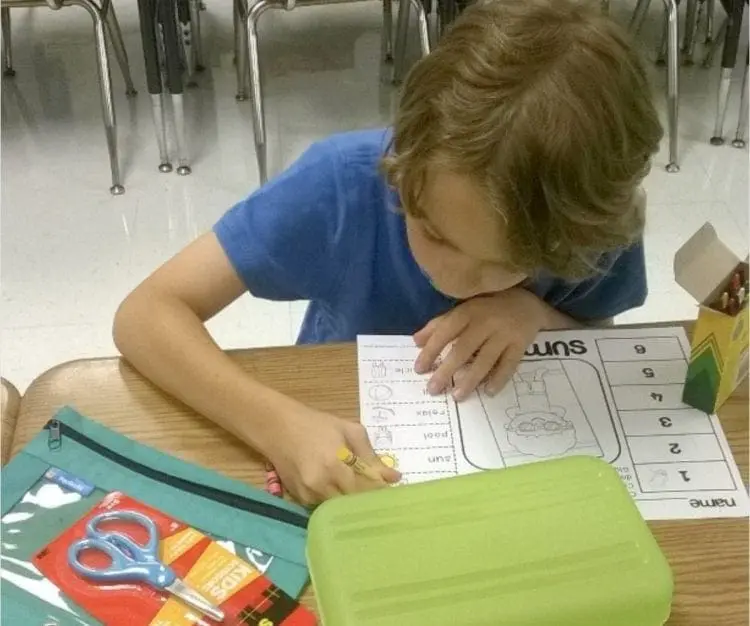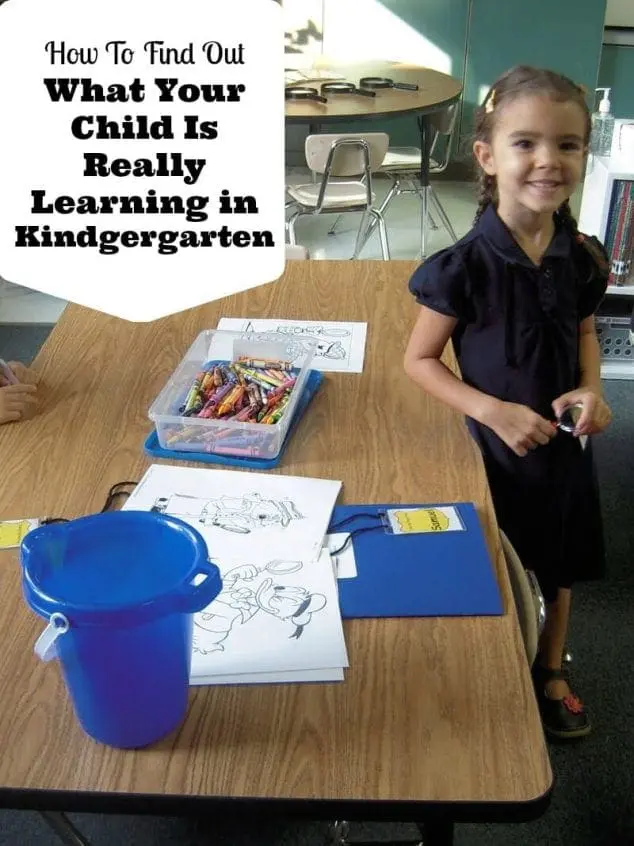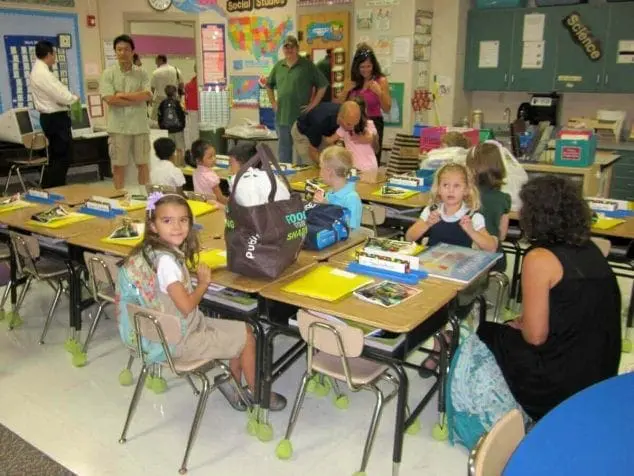Are you wondering what kids learn in kindergarten? Of course it varies from school to school, but I will provide you with a general overview of the curriculum and skills your child will learn in kindergarten. I will also review my daughter’s experience in Kindergarten so far and reveal my secret for finding out what she is really learning.

What Kids Will Learn In Kindergarten
Kindergarten typically focuses on foundational skills that prepare children for later education. This includes basic concepts in literacy, numeracy, and social skills. Here are some common areas of learning:
- Language and Literacy: Children learn the alphabet, letter sounds, basic sight words, and begin to read simple books. They also work on writing their names and simple words.
- Mathematics: Basic counting, number recognition, and simple addition and subtraction concepts are introduced. Children also learn about shapes, patterns, and measurements.
- Social and Emotional Development: Kindergarten helps children learn how to interact with others, share, take turns, and express their feelings in appropriate ways. They also develop skills like cooperation, empathy, and conflict resolution.
- Science: Children explore basic scientific concepts through hands-on activities. This might include learning about plants, animals, the weather, and simple experiments.
- Social Studies: Children begin to learn about their community, different cultures, and basic concepts of history and geography. They may also learn about important historical figures and events.
- Art and Creativity: Kindergarteners engage in various art activities to develop their creativity and fine motor skills. This might include drawing, painting, and crafting.
- Physical Development: Activities like running, jumping, and playing help children develop their gross motor skills. They also work on fine motor skills through activities like cutting, drawing, and writing.

How To Find Out What Your Child Is Learning In Kindergarten
I have often wondered what my child is learning in kindergarten. My daughter and I are getting used to kindergarten now. At first she would say, “I like it but why do I have to go everyday?” It was quite an adjustment from attending preschool one day a week for three hours. Yesterday (a Saturday) she said, “I want to go to school today.” I asked why and she said she missed Ms. DeLise. Now, what could make a mother happier than to know her daughter loves school and she loves her teacher?
So what is she learning in kindergarten? My worry was that she already knew most everything she would learn in kindergarten. She knows her letters and numbers, basic math skills, some sight words, so what could she really learn?
But my fears have subsided because she is actually learning a lot. To begin with, in addition to the normal academic curriculum, they have gym, and music, and art, all of which I think are great for her.
She also learns all the basics of following the rules and interacting with kids. Plus, I get a report each week of the things they have learned. She has learned some shapes that I never taught her such as a trapezoid, and hexagon.
Another way I can see what she is learning is through her homework and graded papers. She brings home these paper books she makes and she has circled all her sight words in the story. She likes to read them to me (sometimes with my help).
Furthermore, she loves to follow the rules and gets a smile face every day on her behavior chart.

Role Play School With Your Child
When I pick her up each day, I ask how school was and she says “Good.” She doesn’t really expand on it that much. I have to ask lots of questions to try to find out anything at all about her day.
Here is my big secret though. I have discovered the best way to find out what my child is learning in kindergarten is to role play with her. What? Yup, it will blow your mind. My daughter doesn’t talk about her feelings and she isn’t much for small talk but when I give her the opportunity to play school with me, well she is a great little teacher.
When we role play, I am the student and she is the teacher and it is so cute to see school from her eyes. “Pupils, pupils, one, two, three, all eyes on me,” she says.
“I am looking for a line leader,” she says, surveying her pretend class. We line up (Leo and I) and she says, “Time for specials” as she leads us down the hall. “Ok,” she instructs us to be still against the wall and tells us we will play quiet mouse while we wait.
Then in pretend art class she sings, “Get your feet out of your seat, do-dah, do dah, get your seat out of your seat so you can have a safe and happy day,” before instructing me in the proper way to draw a person.
She loves acting it out and telling me what to do!
She shows me how they graph the weather and how to do push ups.
Conclusion
Overall, kindergarten is a time for children to explore, learn, and develop foundational skills that will serve them well as they progress through school. It is great fun for me to see what she does at school. So, next time you want to know what your child is learning in kindergarten, ask them to play pretend school with you and watch them act it out!
Related Posts:
40 Awesome Kindergarten Math Journal Prompts
